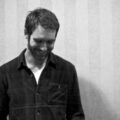The Storm before the Storm: Jane Miller’s Thunderbird

Thunderbird
by Jane Miller
Paperback, $16.00
Copper Canyon, 2013
In her written work as well as her commentary, Jane Miller regards the past as a truth that demands to be told. Her view echoes, in some respects, Faulkner’s famous dictum that the past isn’t even past. However, for Miller, the future is ripe with possibilities even as it is shaped by the past, and especially violence—and it is not available exclusively to those who exploit power. In a 1994 interview with Jocelyn Emerson of Electronic Poetry Review, Miller says:
Our histories are ripe awakenings and not merely repositories. To say, “I can’t remember” to oneself, to another who shared an experience, to someone who didn’t and desires access — to say to a place, to a thing, “I can’t remember you,” “I refuse you” — is cowardly. “Once there was…” — this enchanting phrase desires, deserves to come alive. To me, the past — the plain, unedited past as best as it can be articulated—is as precious and unreliable as a dream, but equally demanding and persuasive.
Miller’s most recent collection, Thunderbird, gets its title from the mythical bird at the center of many Native American cultures’ folklore. According to legend, the bird creates thunder by flapping its wings and lightning by opening and closing its eyes. It is proud and vengeful but is also thought to protect humans from evil. Crucially, the Thunderbird harkens not only to indigenous stories and culture, but also to the subjugation of those peoples and the appropriation of that culture for profit and status. As the American Indian peoples who passed down this legend have been violently dispossessed, so the Thunderbird’s image has been exploited, reduced to a logo for an automobile and a liquor company. At the end of Miller’s poem “Consciousness,” she writes:
the legend disappears
rumors persist of a big dead bird
nailed to a barn with a mighty span unfurledand several men posed under it for scale
The men responsible appear only once, at the end of the poem, to collect their spoils and revel in their accomplishment.
Who reaps the spoils of history? Miller addresses the question both directly, depicting the horrors of war and death, and indirectly through sharp and violent imagery. Even mundane tasks call to mind an underlying violence; in “Accident,” for example, the speaker says: “I cut my trigger finger/breaking last night’s crystal.” Though she mentions only the hurt finger, the specter of a gun is also present. Miller then focuses on the ritual of breaking glass at a Jewish wedding, a tradition that commemorates the destruction of the Temple in Jerusalem—a larger, irretrievable violence that no amount of shattered glass can mitigate:
as an intruder stomping the glass
at a Jewish wedding
between the living and the dead
as between one day and anotherdarkness crashes down
Later in the collection, in “Loaded for Bear,” the speaker tries to temper acts of violence by looking at them figuratively:
This gun is a metaphor
whose drunken
shots one can still see through
the wooden door to infinity
Of course a gun is not a metaphor; it is every bit as real as its consequences, made palpable by the holes in the door. Left with this image, the reader can see beyond where the wood once was and visualize any number of ways to fill the open space. The grim reality, then, is that violence also creates possibilities. War, and more localized forms of violence, ultimately works in some people’s favor; years after the destruction of the Temple, slavery, World War II, and countless other horrors, the victors may face blame but they also continue to reap the benefits.
Miller often portrays violent death as a physical-spiritual space, or a country. In “Belling the Leader of a Flock of Sheep,” death is “the old country/where horseradish grows tall along a fence.” In “Happy Birthday,” the dead exist in a “night-petaled black heaven” with their flaws—missing teeth, coarse language, proclivities towards anger—eerily intact. In “Purple Field,” Miller describes
a family again
bullied bloodletted buried and bonded
as far as I can see
to the far reaches of the galaxythe back of beyond
where nothing else fits
There is a tension between the family’s locus in death and the scars they bear from life; between their ability to be and see “beyond” and the living speaker’s limitations as to what she can see. The country of death is infinite. Violence perhaps creates space for the dead as well as the living.
Miller uses space to her advantage, shifting frequently between such varied settings as a graveyard on Long Island, a concentration camp, an olive grove, and the American suburbs, linking space with the written word and the imagination. In “Purple Field” she writes: “so one makes one’s peace with words/in a poem and with space in a dream.” Space, like dreams and like writing, is open to a myriad of possibilities and alternatives. In his book Vernacular Eloquence: What Speech Can Bring to Writing, Peter Elbow observes:
Insofar as writing exploits the spatial and out-of-time dimension, it is a powerful tool for examining the logic in discourse. When we speak a stretch of thinking (or when we use writing to record a linear stretch on spoken language), we often slide convincingly from one idea to the next and then to the next—till we have wandered into contradicting ourselves without realizing it… But careful writing and diagrams help us see the logic (or lack of it) behind a seductive train of language.
Miller exploits the openness of written language to interpretation. She takes advantage of the way it lends itself to self-correction, a task that is difficult if not impossible in the more temporal medium of speech. In “Moonset,” she writes:
because death has not proved enough
however it changes the whole brigadeif the leader could just look after
the spectators I didn’t say specters
It is as if, by self-censoring, by writing spectators instead of specters, the speaker has the authority to deny death and suffering and generate the space for a living history. The written word is linked with power; the word authority is derived from author, as Miller emphasizes in “Metaphor”:
When one cannot otherwise
reverse a malignancyor rewrite a child or an adult shot outright
suicidal or starved one by one
each questions authority or else the seed wordauthor lords over us all
one might presume painlessly
as it is only language
Written language conveys authority, not least because it creates a community of all who internalize it. In speaking, by contrast, language disappears into the vacuum of time. No one has authorship or ownership over spoken words—they’re unstable and incorporeal. Miller implores us to question the unbridled authority of the written word, especially when evils such as war and destruction are authored. If we don’t, “author lords over us all,” and the delusion that “it is only language” and has no tangible consequences will prevent us from reversing destructive acts.
Written language reinforces the living power of history. It allows little room for reinterpretation and reimagination. Events there take place in a linear and sequential manner and can be recorded in a logical sequence. This natural tendency to make amorphous history into linear progression creates relationships of consequence and blame, of sin and subsequent punishment. But the past is not, Miller insists, a mere repository for the convenient half-truths written by the winners of wars. In “Belling the Leader of a Flock of Sheep,” she draws a contrast between history as the conquests of heroes and history as experienced by a multitude of people, alluding to the legend of King Arthur:
but whosoever pulls this sword from this stone
shall be the rightful heir
whereupon free spirits everywhere withdrawjewel-handled blades from history’s ribcage
The poem is grounded in legends whose reverberations can still be felt. Kings and ruling classes, those termed the one percent, still exist, and often their status is owed to history and accident of birth. Miller re-authors King Arthur’s story, in which only the rightful King of England could pull the sword from the stone, by shifting authority from the heroes to the masses. In her rendition, “free spirits everywhere” are capable of using history to their advantage. She continues: “and in no time the living inhabit the beautiful//loam and moonlight of an old world.” Though history may be written by the victors, Miller demonstrates that it is not wholly stable, that legend and myth create opportunities for revision and reclamation, and that the future is yet to be authored.
About Liza Katz
Liza Katz is a poet, essayist, and teacher. Her work has appeared or is forthcoming in Poet Lore, Omniverse, Burlesque Press, the Quarterly Conversation, and Arts Fuse.





